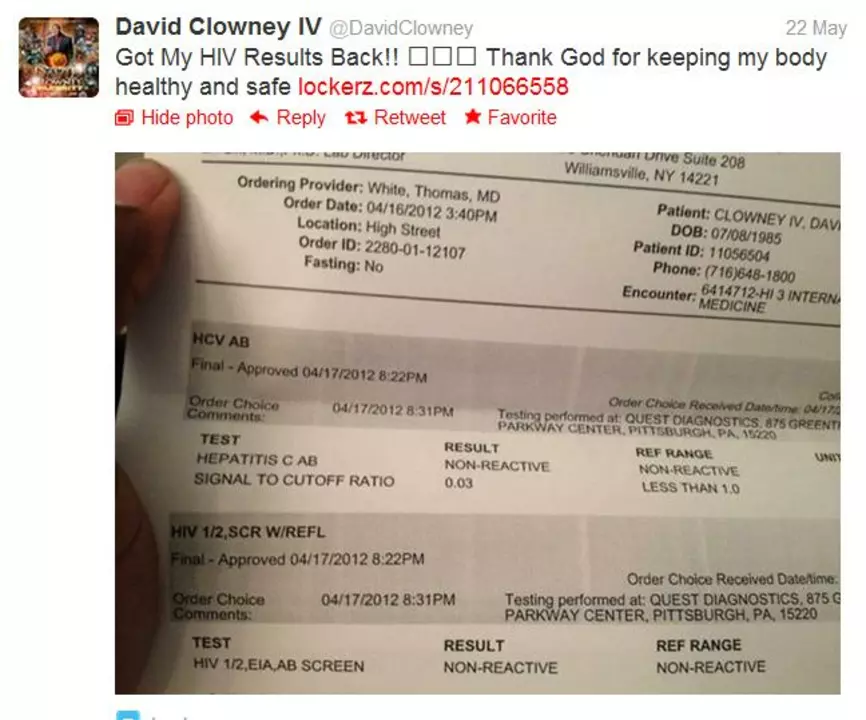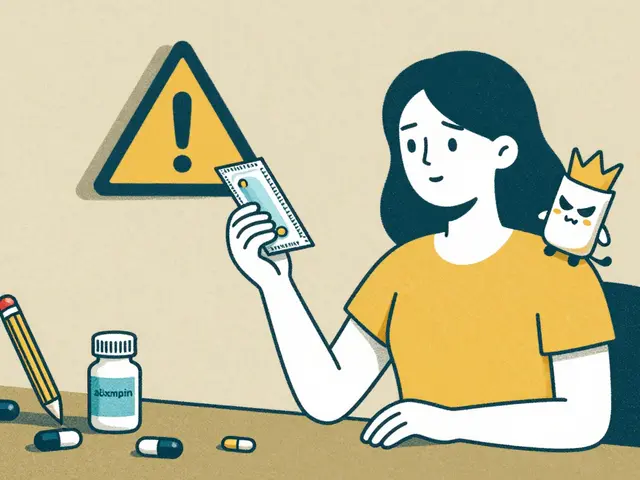Understanding HIV-1 and HIV-2
Before diving into the interpretation of your HIV test results, it's important to have a basic understanding of what HIV-1 and HIV-2 are. Both are types of Human Immunodeficiency Virus (HIV) that attack the immune system, specifically the CD4 cells (T-cells), making the body more susceptible to various infections and diseases. HIV-1 is the most common strain found worldwide, whereas HIV-2 is predominantly found in West Africa.
Though these two strains share many similarities, they also have some differences. HIV-2 progresses more slowly than HIV-1, and individuals infected with HIV-2 are less likely to transmit the virus to others. As a result, HIV-1 is responsible for the majority of HIV cases globally. It is essential to know which strain you have been tested for, as the treatment options may differ.
Types of HIV Tests
There are several types of HIV tests available, each with its own methods and purposes. The most common tests include the rapid test, the enzyme-linked immunosorbent assay (ELISA), and the Western blot test. These tests typically look for antibodies produced by the immune system in response to an HIV infection or for the virus itself.
Other tests, such as the nucleic acid test (NAT) and the antigen/antibody test, can detect the virus earlier in the infection process. These tests are generally more expensive and may not be as widely available. It is crucial to understand which test you have undergone to correctly interpret the results and determine the next steps.
Interpreting Your Test Results
After receiving your HIV test results, it is essential to know what they mean. Generally, the results will be reported as either negative, positive, or inconclusive. A negative result means that no HIV antibodies or antigens were detected in your blood at the time of testing. It is important to note that it can take several weeks to several months for the body to produce enough antibodies to be detectable, so a negative result does not necessarily mean you are not infected with HIV.
A positive result indicates that HIV antibodies or antigens were detected in your blood. In this case, further confirmatory testing is usually done to rule out any false-positive results. An inconclusive result means the test was unable to determine whether you are infected with HIV or not. This may occur if there was an issue with the test itself or if you were tested during the "window period" when the body has not yet produced enough antibodies to be detectable.
Confirming a Positive Result
If your initial HIV test result is positive, it is important to undergo a confirmatory test to rule out any false positives. The confirmatory test is usually the Western blot or the immunofluorescence assay (IFA), which are more accurate in detecting HIV antibodies. If the confirmatory test also comes back positive, you will be diagnosed as HIV-positive.
It is essential to remember that a positive HIV diagnosis is not a death sentence. With proper medical care and adherence to antiretroviral therapy, people living with HIV can lead healthy, normal lives. Early diagnosis and treatment are crucial in managing the virus and preventing the progression to Acquired Immunodeficiency Syndrome (AIDS), the final stage of the HIV infection.
What to Do If Your Results Are Negative
If your HIV test results are negative, it is important to continue practicing safe behaviors to minimize the risk of contracting the virus. This includes using condoms consistently and correctly, getting regularly tested for HIV and other sexually transmitted infections (STIs), and discussing your partner's HIV status.
Additionally, if you believe you may have been exposed to HIV or are at high risk of contracting the virus, you may want to discuss pre-exposure prophylaxis (PrEP) with your healthcare provider. PrEP is a daily medication that can significantly reduce the risk of contracting HIV when taken as prescribed.
What to Do If Your Results Are Inconclusive
If your HIV test results are inconclusive, it is essential to follow up with your healthcare provider to determine the next steps. They may recommend retesting after a certain period or undergoing a different type of test to confirm your HIV status. It is crucial to continue practicing safe behaviors during this time, as your true HIV status is still uncertain.
Remember, early detection and treatment are key in managing and living with HIV. If you are unsure about your test results or have any concerns, do not hesitate to consult your healthcare provider for guidance and support.
Support and Resources
Receiving an HIV diagnosis can be overwhelming and emotional. It is important to remember that you are not alone, and there are resources and support available to help you navigate this new chapter in your life. Reach out to local HIV/AIDS organizations and support groups, connect with others living with HIV, and educate yourself on the virus and its management.
By understanding your HIV test results and taking the appropriate actions, you can take control of your health and live a fulfilling life with HIV. Remember, early diagnosis and treatment are key to managing the virus and preventing progression to AIDS. Stay proactive in your healthcare, practice safe behaviors, and seek support when needed.








8 comments
Matthew King
just got tested last week and got a negative-still weird to think about how long the window is. i didn’t even know you could get false negatives if you tested too soon. thanks for the reminder to keep safe.
Melissa Thompson
I must point out-though I suspect most of you haven’t read the CDC’s 2012 surveillance report-that HIV-2 is not merely ‘predominantly found in West Africa’; it’s also been documented in immigrant populations in Europe and the U.S., particularly in New Jersey and Maryland, due to transatlantic migration patterns from Guinea-Bissau and Cape Verde. The assumption that HIV-2 is ‘rare’ outside Africa is dangerously outdated-and frankly, it’s why so many clinicians misdiagnose it. You’re welcome.
Rika Nokashi
In my professional opinion, as someone who has worked in public health clinics across Mumbai and Delhi for over a decade, the most critical factor in managing HIV outcomes is not merely the type of test administered, but the quality of post-test counseling provided-something that is woefully underfunded in low-resource settings. Many patients, especially those from rural communities, are left with a positive result and no clear pathway to care, which leads to abandonment of treatment, stigma, and preventable transmission. The science is advanced, but the social infrastructure remains fragile.
Don Moore
It's important to emphasize that early diagnosis and consistent antiretroviral therapy have transformed HIV from a terminal diagnosis into a manageable chronic condition. With adherence, viral suppression is achievable, and transmission risk drops to near zero. If you or someone you know has tested positive, please connect with a specialist immediately-your future self will thank you.
Austin Levine
PrEP is a game changer. I’ve known three people on it-none got infected. Simple as that.
Joe Puleo
hey, if you’re reading this and you’re scared about your results-just know you’re not alone. i went through this a few years back. got the news, cried for a week, then found a local support group. now i’m undetectable and working as a peer counselor. it’s not the end-it’s just a new start. you got this.
Amelia Wigton
The clinical sensitivity of fourth-generation antigen/antibody assays is approximately 99.8% at 4 weeks post-exposure, whereas nucleic acid testing (NAT) can detect viral RNA as early as 10–14 days post-infection-however, cost and accessibility remain significant barriers in non-urban primary care settings. Furthermore, the CDC recommends retesting at 3 months for any high-risk exposure, regardless of initial result, due to seroconversion kinetics and assay limitations in acute-phase viremia.
Andrea Swick
I appreciate how thorough this post is, but I think we’re missing something: the emotional toll of waiting for results. I was inconclusive for three weeks. Every text notification made my heart stop. I didn’t tell anyone. I just sat there, Googling, terrified. The medical facts are vital-but so is acknowledging how heavy that silence is. If you’re reading this and you’re in that limbo? Breathe. You’re not broken. You’re just waiting. And you will get through it.